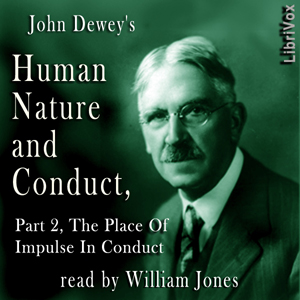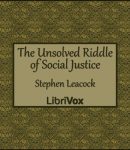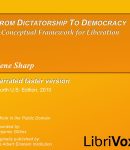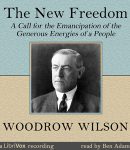
Nerves and Common Sense
This is a collection of 30 articles on mental health, stress reducing and general advice on how to deal with everday problems at work or at home. (Summary by Sonia) [chương_files]











This is a collection of 30 articles on mental health, stress reducing and general advice on how to deal with everday problems at work or at home. (Summary by Sonia) [chương_files]

This pamphlet by LGBT pioneer and philosopher Edward Carpenter was originally intended to form part of his work “Love’s Coming of Age”, but was removed following public discourse on the Oscar Wilde trials of 1895. It was subsequently published privately and circulated among his inner circle. This is Carpenter’s first publication on the subject of homosexuality, and displays his typical forward-thinking and utopian sentiments. It seeks to make clear that homosexuality is innate, is more widespread than generally accepted, and even implies that degress of bisexuality may be universal. – Summary by Jake Malizia [chương_files]

Mill’s volume was published in 1861 as an argument favoring this form of governance. Mill covers what forms of government work best, including when representative government is applicable and when not. He details appropriate functions of representative bodies and warns of problems to avoid. He distinguishes between true and false democracy. Other areas covered include how voting is carried out, the role of a second chamber in Parliament, and how an executive branch might function. (Summary by Bill Boerst) [chương_files]

I propose to discuss in what follows the evil of the great modern Capitalist Press, its function in vitiating and misinforming opinion and in putting power into ignoble hands; its correction by the formation of small independent organs, and the probably increasing effect of these last. (Introduction by Hilaire Belloc) [chương_files]

“With opinions, possession is more than nine points of the law. It is next to impossible to dislodge them.” Woodrow Wilson’s Study of Administration examines public opinion’s role in politics. It is one of 20 nonfiction readings chosen by the readers. Other faceted topics in volume 088 include culinary taste (Stewed Eels) the existence of the supernatural (Mayo v. Satan; Previsionary Dream); slavery (The Constitution and the Slave; A Scrap of Curious History); peace and war (Bumping into the Bolshevists; Russians as I Knew Them; Bogdan Chmielnicki; Armistice; International Peace) and culture (Who Thinks Abstractly; Apollo or Dionysus; Landscape Painting; the College Glee Club; Tagore’s Reminiscences; and Frances Burnett). Rounding out the volume are a survey of Martinique, and a medical treatise on the Organs of the Human Voice. (Summary by Sue Anderson) [chương_files]

This lengthy political essay by noted Canadian humourist Stephen Leacock was written while he was professor of political economy at McGill University. He argues for a middle ground between capitalism and pure socialism. Listeners in the early 21st century may find this 90-year old essay oddly topical. (Summary by Sean Michael Hogan) [chương_files]

From Dictatorship to Democracy, A Conceptual Framework for Liberation is a book-length essay on the generic problem of how to destroy a dictatorship and to prevent the rise of a new one. The book was written in 1993 by Gene Sharp (b. 1928), a professor of political science at the University of Massachusetts. The book has been published in many countries worldwide and translated into more than 30 languages. Editions in many languages are also published by the Albert Einstein Institution of Boston, Massachusetts. This is the Fourth United States Edition, published in May 2010. The book has been circulated worldwide and cited repeatedly as influencing movements such as the Arab Spring of 2010–2012. – Summary by Wikipedia This second version is newly recorded, with a faster reading pace than the first version. [chương_files]

A classic work on military strategy by a veteran of the Napoleonic Wars. The author’s style is dialectical: he makes two strong but opposing statements and then draws them together to describe many facets of war. Free of technical jargon, and suitable for modern readers. This audiobook is based on a 1909 English translation. In section 2, the reader Timothy Ferguson was assisted by Linda Ferguson. [chương_files]

Le « Dictionnaire des idées reçues » : recueil d’exemples de l’intelligence humaine qui se dépasse elle-même. Les temps changent ; ce genre d’intelligence, non. Flaubert nous fait des clins d’œil depuis sa tombe – et ceci durera certainement jusqu’à la fin des temps… (Par Didier) [chương_files]

The book is not a discussion of measures or of programs. It is an attempt to express the new spirit of our politics and to set forth, in large terms which may stick in the imagination, what it is that must be done if we are to restore our politics to their full spiritual vigor again, and our national life, whether in trade, in industry, or in what concerns us only as families and individuals, to its purity, its self-respect, and its pristine strength and freedom. (From the Preface) – Summary by Woodrow Wilson [chương_files]
Copyright © 2024 | FreeAudible